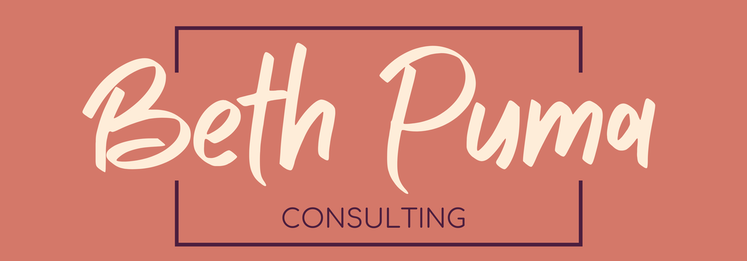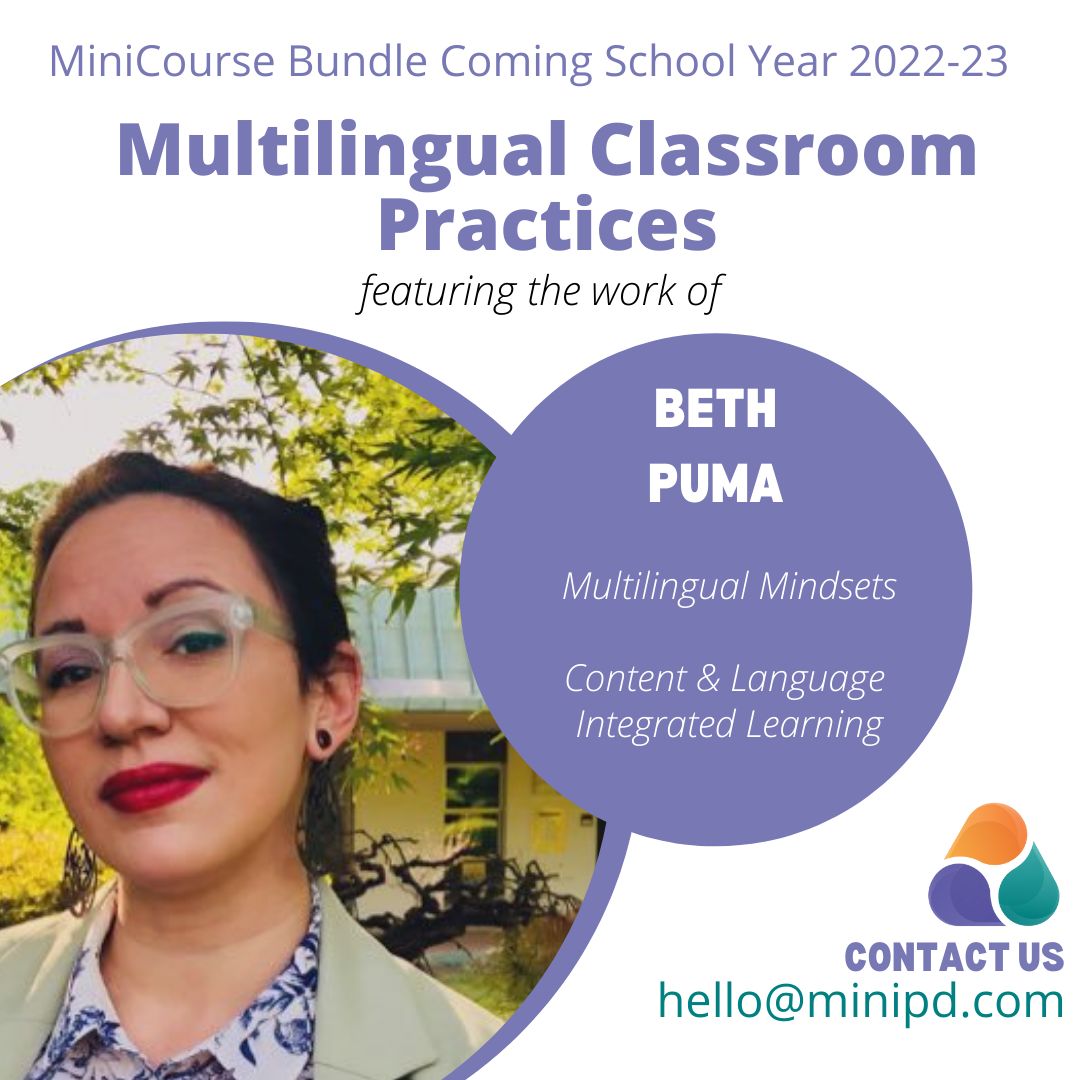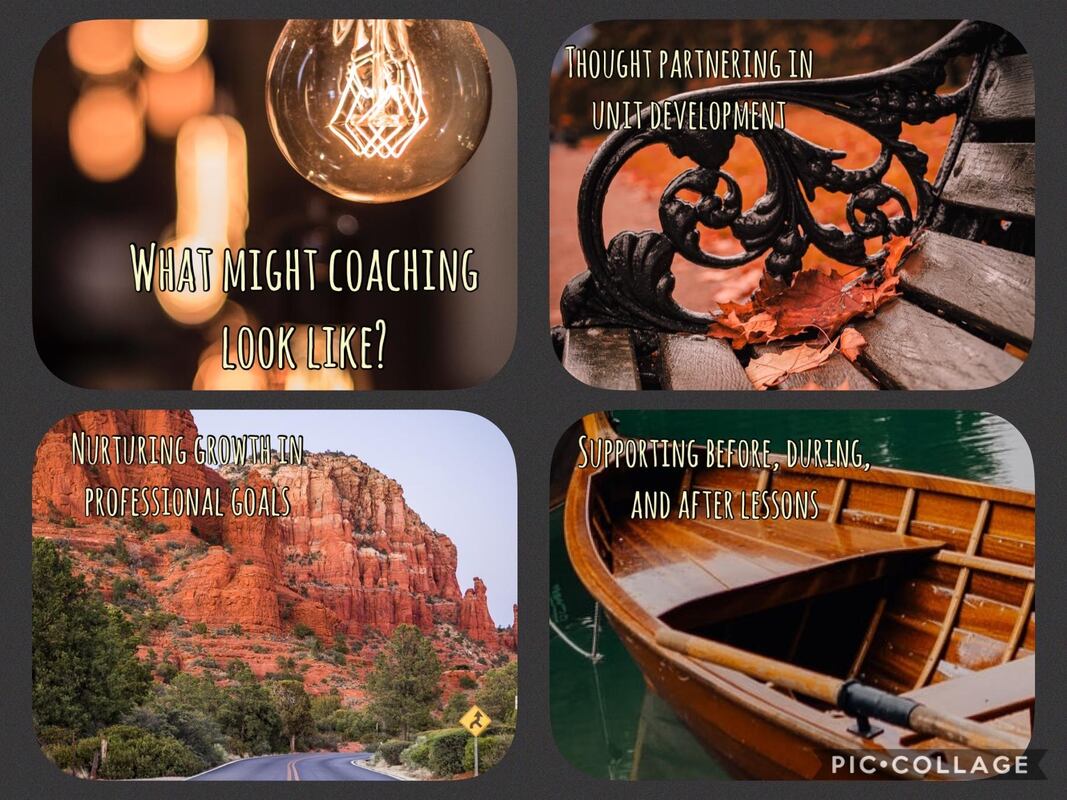|
I am delighted to share that I am continuing to partner with MiniPd. I am developing two asynchronous courses as part of a larger subscription bundle. These courses will explore the multilingual mindsets and content language integrated learning. The courses are about an hour of contact time each, with lots of resources and opportunities to extend your learning.
I continue to be inspired by my work with MiniPD. Their model of responsive and affordable high quality professional learning is energizing! Stay tuned!
0 Comments
 Photo by Yeshi Kangrang on Unsplash Photo by Yeshi Kangrang on Unsplash Some schools and districts have large coaching departments and are committed to one approach to coaching. They invest deeply in a practice, training their leadership, their coaches, and their teachers in what coaching might look like. I don't work within a big coaching department. I am a coach of one. Additionally, I've never been one to throw myself fully behind one approach to anything. My brain is thirsty for connecting ideas: finding the intersections of theories and practice from multiple frameworks. Perhaps, this is why I find great joy in being an EAL specialist in cotaught situations. It is a delightful challenge to merge all that we know about second language acquisition to content/grade level outcomes. The same can be said of my coaching. What is grounding my coaching practice? I am constantly seeking the "just right" zone for a coachee between directive and facilitative coaching. This explanation by Elena Aguilar was really helpful for me about when to use which mode. Directive coaching is what many people think coaching is; the coach tells you the strategy and gives you the resource and the coachee tries it. Of course, (I say of course-but really this was a hard earned lesson in my early coaching work) this is minimally effective if it is the default modus operandi. It creates walls that prevent the more vulnerable work of reflection. It doesn't help the perfectionist teacher and can at times breed resentment. Facilitative coaching requires a different set of skills. At the very core its listening deeply and using questions to facilitate thinking. Don't let that fool you though. It's not easy work. In growing my own coaching practice who have I turned to learn from? First, I was so lucky to have the opportunity to take a Cognitive Coaching seminar with Bill and Ochan Powell. I wasn't a coach then, still an EAL co-teacher and curriculum coordinator, so the lessons for me were early. From this I learned about the concepts and moves of pausing, paraphrasing, and questioning. I learned about the idea of self-efficacy and craftsmanship as what we work towards in our coaching conversations. I got to see what it looked like. Later, I learned about the work of Jim Knight, particularly his work around developing an Instructional Playbook and the Impact Cycle. These were the practical moves that created the day-to-day work of coaches. They helped me get organized and get systematic with my approach. I am influenced by the work of Zaretta Hammond. She does not shy away from real conversations around racial equity and their direct connections to classroom instruction. She discusses the coach's role in service of this charge. I'm not interested in any coaching that doesn't develop greater educational equity and doesn't develop a racial literacy lens. She looks deeply at all the opportunities within one lesson to maximize what we know about the brain and our kids. Finally, I am most greatly influenced by the work of Elena Aguilar. Her approach to transformational coaching emphasizes not just building trust, which all the aforementioned models do, but really how the behaviors (ie: instructional decisions) one makes are impacted by beliefs and ways of being. For me, this is infinitely helpful because this type of coaching acknowledges the feelings that come up within coaching conversations. It challenges me to listen to seek to understand in deeper ways. And it is never yielding in looking for the roots of what impacts our day to day decisions as educators. She extends this work to coaching for equity as well. Her work continues to challenge me, as I think about what my coaching is in service of and how to practically keep that at the heart of my day to day. Again, I have never been the type of person to subscribe to one approach or one way of thinking. My brain is thirsty for connections. My coaching practice is grounded in the constant dance of trying to apply all that I have learned. I love witnessing multilingual children thrive in classrooms that facilitate language acquisition while nurturing deep intellectual curiosity while tending to social emotional needs, while being just playful. This reminds me of why I coach. Making space for educators to pause, reflect, strategize, and find (or rekindle) their joy is a great privilege. Last post I unpacked some of the misconceptions about coaching. There are so many reasons that teachers put up walls around their practice: burnout, perfectionism, very real time crunches, and not to mention pandemics! Engaging with coaching does ask us to slow down. Because the main role of a coach is about carving out space for thought partnering and reflection.
It is about....
 Photo by Christian Lue on Unsplash Photo by Christian Lue on Unsplash There are so many misconceptions about coaching. Often times, it is considered a vertical move for classroom teachers with expertise and a large instructional toolbox to become a coach. This misconception immediately sets up the coach for missteps in their coaching practice. (It is worth noting that coaching requires a unique set of coaching strategies-just because you are a strong teacher does not mean you have what you need to be a strong coach). Additionally, it is a misconception that also contributes to classroom teachers being cautious, guarded, or even armored up to the idea of coaching. Another misconception is that the coach is solely a resource provider. Although this is an element of the role, it cannot be the only one. It only furthers the aforemationed misconception that oftentimes causes teachers to armor up. It also overemphasizes a problem/solution lens of what coaching is, rather than carving out the time for reflection, building deeper understandings about our own practice and student learning, and resilience. Coaching asks of us to slow down. There are a thousand reasons to not feel like we can slow down given all the realities of teaching today (during a pandemic!) and yet given all the realities of teaching today how can we not? I'm a Language and Literacy coach. I'm learning everyday. More soon... |
Beth PumaI am an MLL specialist, coach, and educational consultant that is dedicated to building a more transformative educational landscape that honors linguistic diversity and challenges societal paradigms. Archives
July 2024
Categories
All
|


